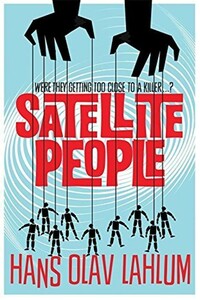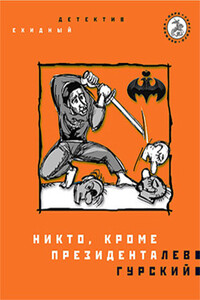The Catalyst Killing | страница 26
There were a couple of bookshelves, but otherwise, three of the four walls were so full of photographs that it was hard to tell whether the wall behind was painted or papered. Falko Reinhardt was in every single picture that I could see. If you followed the walls from the door, you followed his journey from babe in arms to bearded adult in hundreds of photographs.
The first picture, dated 1 June 1945 in felt tip, was a simple photo of his parents smiling broadly amongst all the Norwegian flags down at Oslo harbour, holding their oblivious baby in their arms. Arno Reinhardt was younger, darker and happier, but easily recognizable. His left hand was entwined with his wife’s, and in his right arm he held their son triumphantly up to the camera.
The Reinhardts looked on with something akin to devotion as I studied the photograph, fascinated. Mrs Reinhardt was the first to speak.
‘It was a beautiful, sunny day. We happened to be on the same ship as the prime minister and president of the Storting when they returned from London to the newly liberated Norway. Only three years earlier, Arno and I had thought we would never return to Oslo, let alone come home with a child.’
I noticed that there were no photographs from the time before Falko, and asked when they had met. This time, it was he who answered.
‘Rather typically, it was in the trenches, in the fight against fascism. In Madrid on a spring day in 1937. I had travelled from Amsterdam to volunteer as a soldier, and Astrid had come from Oslo to volunteer as a nurse. We met in a trench and stayed together. Then in spring 1938, we and many other volunteers had to leave Spain in order to save our lives. I anticipated that the Netherlands would be occupied by the Nazis within a few years. So I followed my Astrid to Norway. We never for a moment dreamed that Nazism would follow us here.’
The Reinhardts were remarkably well synchronized. His wife nodded as he spoke, and then continued the story.
‘But then one day the war came to Norway. Before the war, we had been active in the Norwegian Communist Party and had met Peder Furubotn. So it was perfectly natural for us to support the communists in the resistance movement. We were active even before the Germans attacked the Soviet Union, in case you were wondering. Then everything exploded and we had to escape in all haste. We were with Furubotn when the Germans attacked his camp in Valdres in the autumn of 1942 and miraculously managed to get away and across the border into Sweden. But the authorities there persecuted us for our political beliefs too. So then we went to Great Britain, where we worked in the lower echelons of the government administration for the last two years of the war. And it was there, in autumn 1944, in the midst of all the horrors of war, that we experienced a miracle that we had not dared to hope for.’


